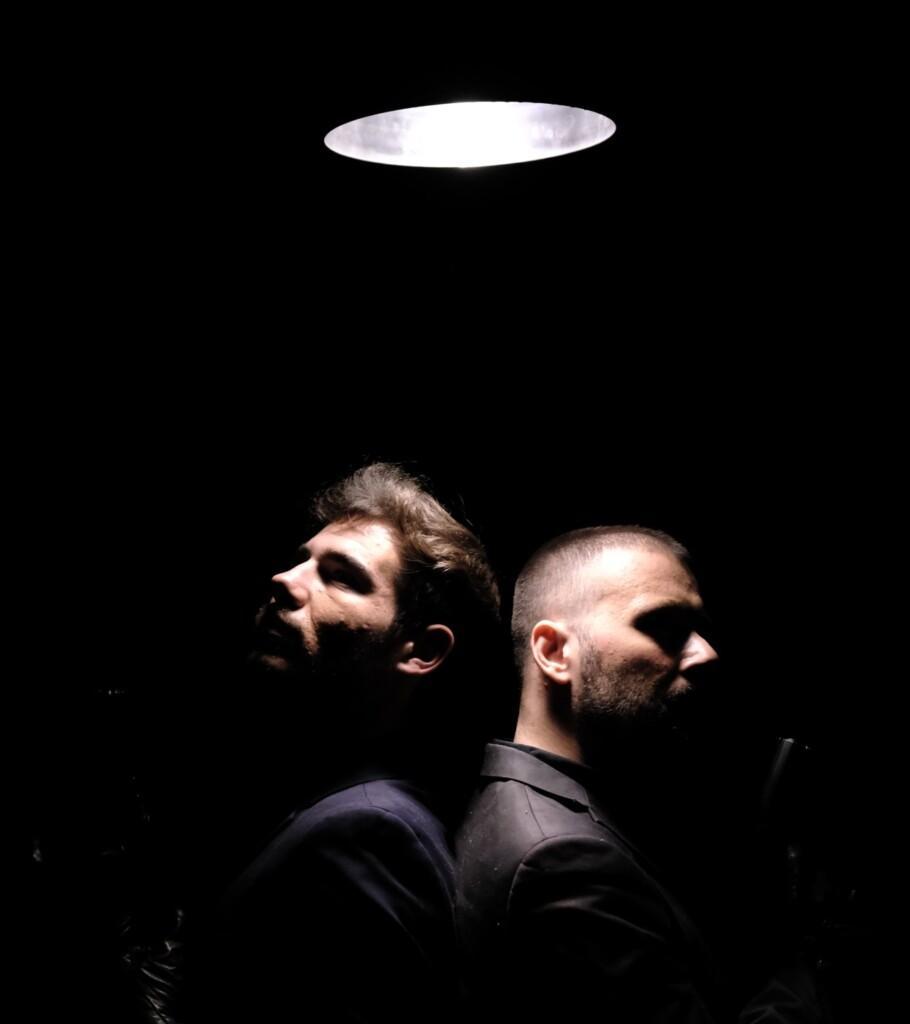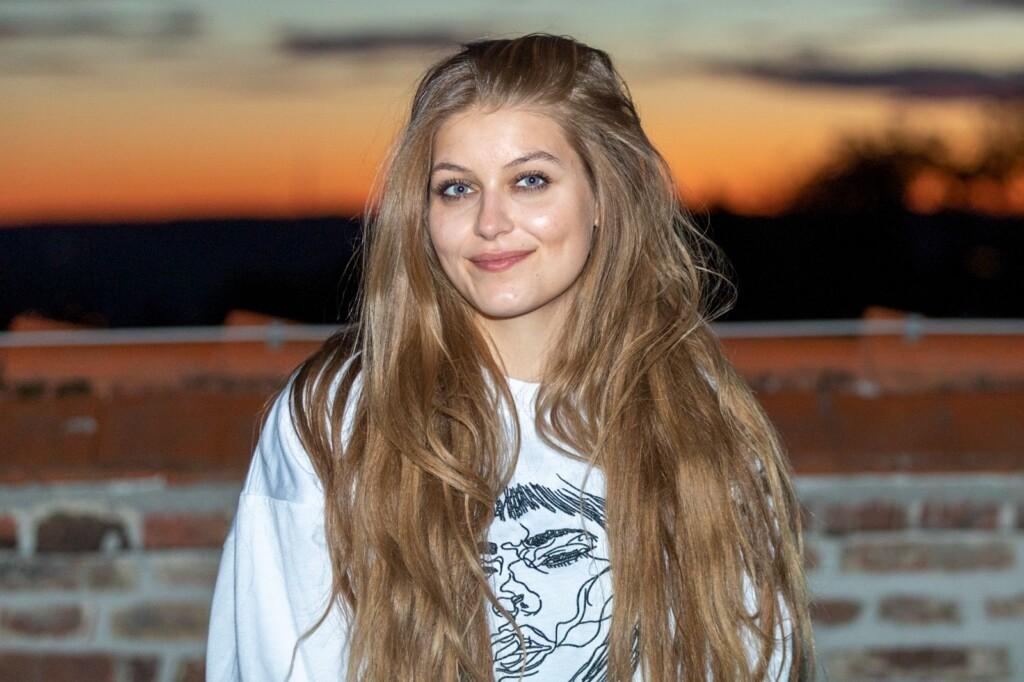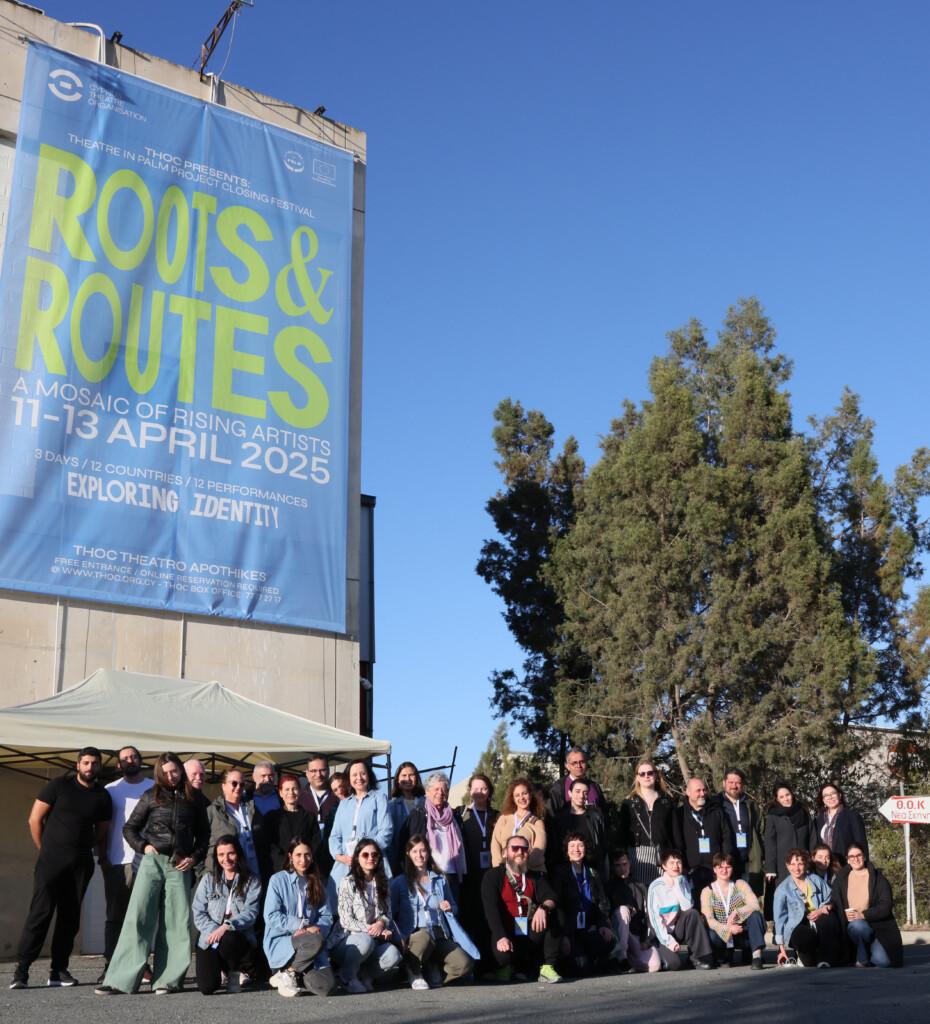Diary of a Residency in Reggio Emilia: exploring human memory and heritage through objects
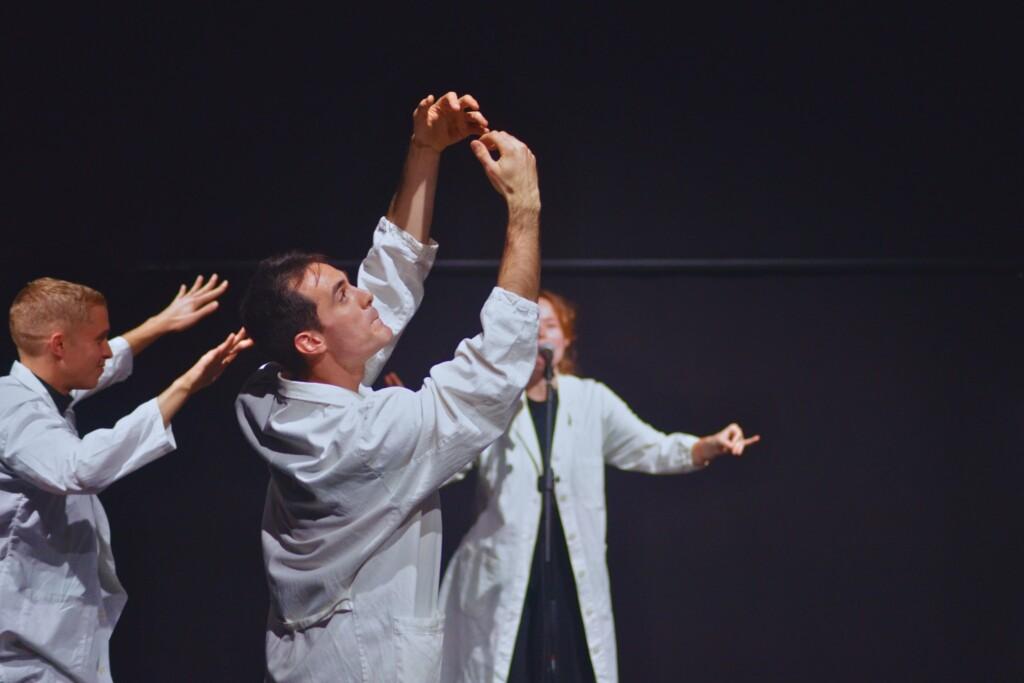
Through a series of collaborative exercises, the 5 artists of the Reggio Emilia’s Residency, organised by E35 Foundation in collaboration with the MaMiMò Theatre Centre and that took place in November 2024, explored the themes of memory, history, and the future, using objects, personal stories and performances. One of the participants, Federico Mattioli, captures in his diary the creative process and its challenges.
(First week)
4 November
Before coming to Reggio Emilia, our tutors Fabio Banfo, Marco Maccieri and Gabriele Albanese from the MaMiMò Theatre Centre asked us to bring three objects and images representing the past, the present and the future.
Now we can start sorting through these objects and images, wandering through a sort of collective archive. It’s a funny and strange way to look at each other. We come from very different countries—Belarus, Greece, Lithuania, Sweden, and Italy—but our memories and experiences, as well as our predictions for the future, seem to collide.
5 November
Yesterday we had a huge brainstorming session. Just before we went to dinner together, Gabriele suggested a possible idea for bringing such diverse materials together—create an exhibition, turn the theatre into an interactive and dislocated museum where different performances could take place; this would be our mission.
This morning we are all gathered around the table. Gabriele wrote down all the suggestions and ideas from yesterday and put them on a map.
Fabio asks us to do an exercise: pick one of these ideas that could become the title of a play. I choose a paper that says: 15 OBJECTS.
Fabio: Now, you have 15 minutes to tell us what your play is about. Focus not only on its form, but especially on what the show is supposed to transmit.
Once we are left to think about it, I come up with this text:
Welcome. After so many centuries of oblivion, we are proud to finally welcome you to the exhibition of the last 15 remaining objects of humankind. It took our experts several years of archaeological studies to collect fifteen objects that humans created and possessed. Many of these items may be incomprehensible to you. Have no fear. I will guide you through the exhibition and explain the purpose of each one.
Viktoria presents the story of McDonald’s—it all starts as a good idea and then turns into a big capitalist mess. Asia shares her Grandma’s Stories. Leon talks about reality and how it can be distorted in the lives of some of his loved ones. Aliki, in front of a window, poses the question: What will we leave behind, as a society or as individuals?
As Fabio points out during the discussion, all our brief pieces share the idea that the future is a kind of loss; we feel nostalgia for the future by thinking about what we will lose. He then suggests another exercise. Divided into two groups, we should choose one of the improvisations by a member of the opposite group and present it in a play.
Viktorija and I choose Asia’s Grandma Stories. We select one of these stories, and Viktorija interviews Asia about it. Then, we simulate the Telephone game, passing two versions of the story by whispering it into the ears of our audience.
When Viktorija gives an introduction in English to our piece, telling the audience to stay grounded, close their eyes, and focus on what surrounds them, I translate it with twisted details.
Close your eyes. Aprite gli occhi. Think about what is going on outside. Pensate a quello che vi succede dentro.
Fabio: Very interesting, this cognitive dissonance you have created. I didn’t know what to do. And since it was happening in two different languages, I felt it even more. I didn’t know which of the two was telling the truth. This is the perfect representation of our times.
Leon: When I heard two opposing commands, I quickly decided which one to follow and stuck with it. Perhaps this is a survival mechanism for difficult times—we tend to make quick decisions and stick with them no matter what.
Aliki, Leon and Asia take my idea of the 15 objects and turn it into a performance in which aliens discover the objects of humanity—they approach a small table/altar and start playing with the objects. It is beautiful and almost hypnotic to see them touching and discovering the objects—alien children, with no judgment, finding poetic meaning in ordinary things. It’s interesting to observe how, as they discover us, we also discover them. Thus, their “museum” actually tells us more about them than about us.
Leon: I was thinking about this TV show, “Cunk on Earth,” in which a comedian fakes interviews with experts. She asks an Egyptologist whether the pyramids were built that way to keep homeless people from sleeping on them. And the expert replies, “Of course not! But actually, in Egypt, there were no homeless people.” Like, really? Are we sure about that? Isn’t that a glorified image of our past?
Then, we switch groups and repeat the exercise.
For their play, Viktoria and Leon ask for a volunteer, and I step forward. They let me sit on a chair and tell me that I’m dead. But if I could go back, what is something I would leave behind?
Taken unawares, I say the first thing that comes to my mind: A letter, to everyone I loved, so that I could make them feel my appreciation.
Viktoria: A letter? Really? That’s the thing you would leave behind? A written piece of paper?
I did not expect this reaction. I feel attacked, but also disappointed in myself. Just a letter? Couldn’t I come up with something better, something less ordinary, something more meaningful?
Leon defends my choice, while Viktoria challenges it. It is painful and challenging at the same time to be cornered with such a broad yet central question: What will I leave behind?
Fabio: I like how you presented the audience with a contradiction—two contrasting points of view, both equally valid. The audience can either see this contradiction embodied by characters on stage or experience it firsthand.
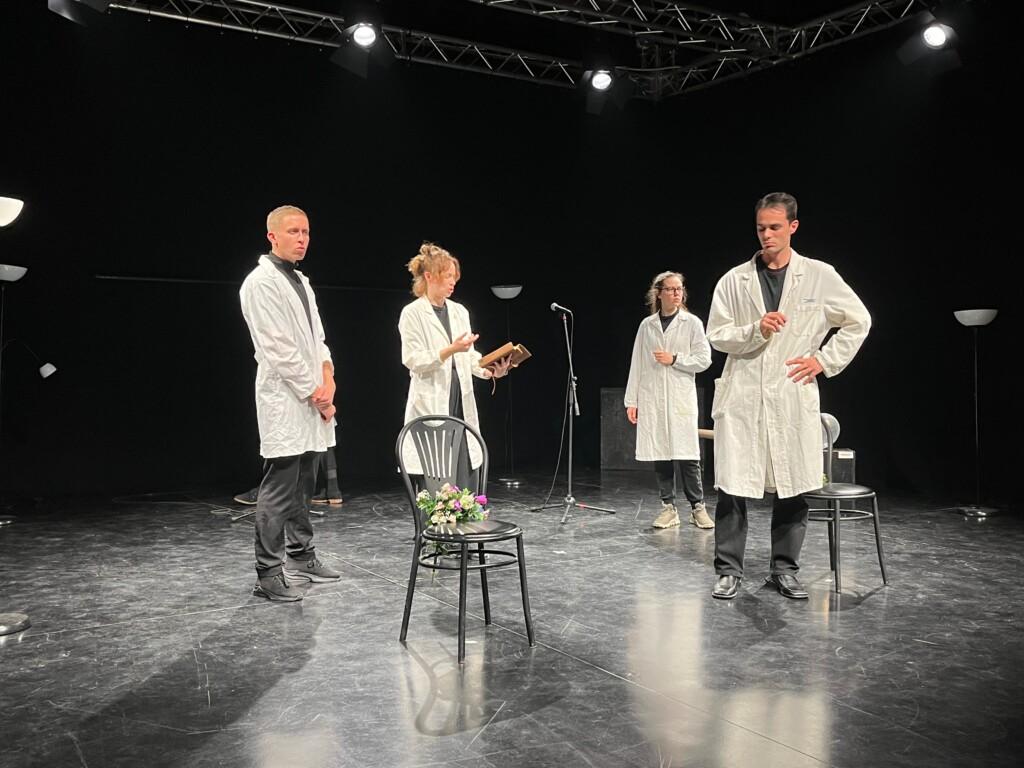
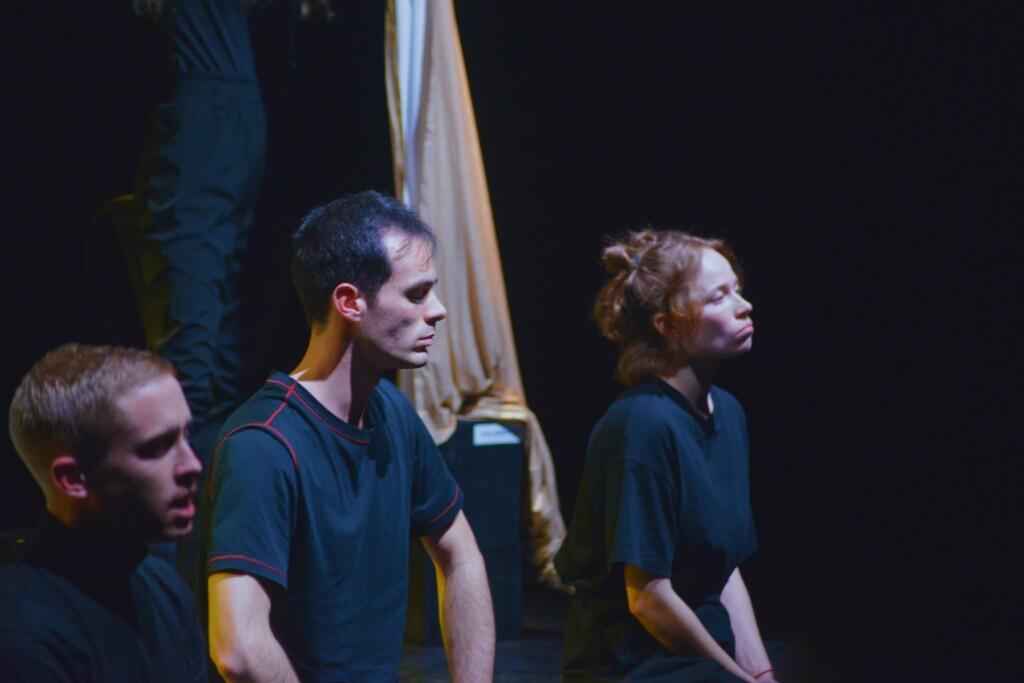
6 November
Yesterday, Fabio asked us to think about what kind of show we would like to create. We all agreed to focus on the essentials and create a few pieces but go deeper into the themes and approaches—except for Asia, who would like to experiment more and thinks we have enough time to do so.
Fabio asks us to take some time to discuss a common theme for our performance.
Just as we analyse our pieces and previous discussions, we understand what the common thread is: What do you (want to) leave behind? It connects both the idea of individual and collective heritage and the awareness that what we want to leave behind is not always what future generations find and deal with. Our heritage gets distorted and becomes a different reality.
Fabio listens to our explanation and asks us to come up with five different ideas for a show. I’m surprised. As soon as we finally start feeling like a group, I feel that we are being pushed in five different directions.
Viktoria’s idea: To have the audience write a testament of what they want to leave behind and then burn it, like the Mandala made by monks. Leon: I want to represent a goodbye ritual. Aliki wants to work on a story in which rituals gradually get lost while being handed down through generations. Asia wants to work on her Buddhist diaries. I want to work on the extinction of languages. Out of the 6,000 languages in the world, linguists say that 90% will die by 2100. I imagine that in this residency, we can save a few words—not by replacing them with others, but by using different forms of language: bodies, pictures, objects, music.
A part of me thinks that if all languages except one were to die, it might be sad but practical. I think of how difficult it is during this residency to understand and make ourselves understood.
7 November
We dedicate this day to the creation of the 5 pieces.
We start with Viktorija’s idea—we create a shared letter, writing down, in just 30 seconds each, what we’d like to leave behind, then we hang it on the wall. After that, Leon arrives with the garbage and throws the paper roll away.
I feel sickened by this approach. Yet, the conflict that emerges in this gesture interests me—it makes me feel both beauty and desperation in the space of a single minute.
Later, in the car, I ask Asia how she feels.
Asia: I feel a bit naif, you know?
Yes, now I know.
Work diary by Federico Mattioli
